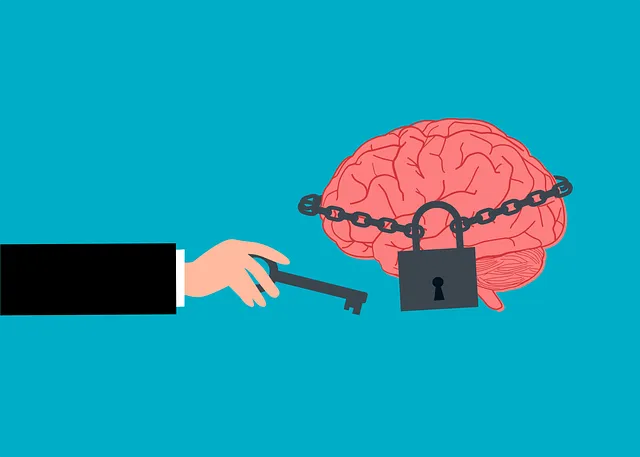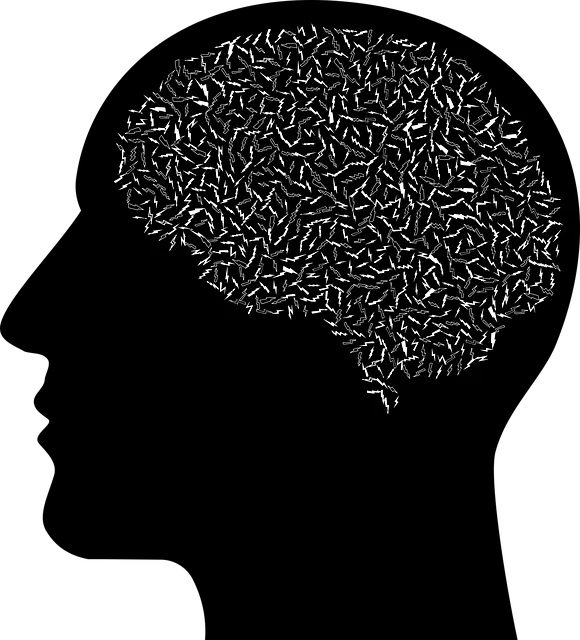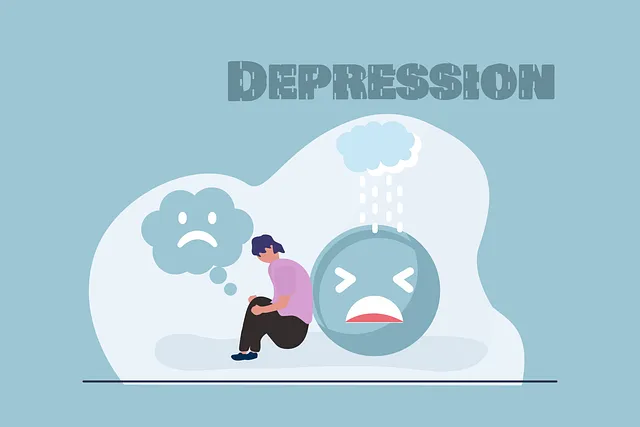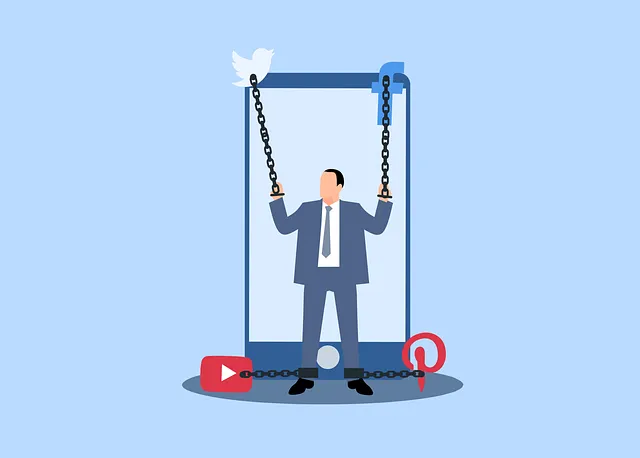Kaiser Permanente Lone Tree enhances mental wellness through specialized group facilitation, creating safe spaces for individuals to share experiences and build resilience. Their trained facilitators encourage active listening, empathy, and non-judgmental attitudes, fostering trust and acceptance. Engaging participants through diverse interaction methods, including small group discussions and therapeutic activities like mindfulness exercises and art therapy, promotes learning and personal growth. Success is measured through surveys, observational notes, and member feedback, ensuring sessions improve individuals' lives and well-being. Kaiser Permanente Lone Tree offers comprehensive mental health services tailored to the unique needs of the community.
Mental wellness group facilitation plays a vital role in supporting individuals through challenging times. This article explores techniques employed by organizations like Kaiser Permanente Lone Tree to foster effective group sessions, focusing on creating safe spaces and engaging participants. We delve into strategies for interactive group dynamics, incorporating therapeutic activities, and measuring the impact of these sessions. Understanding mental wellness facilitation is crucial for organizations offering such services, including Kaiser Permanente, to enhance patient care in Lone Tree and beyond.
- Understanding Mental Wellness Group Facilitation: A Role for Kaiser Permanente Lone Tree
- Techniques to Foster a Safe and Supportive Environment
- Engaging Participants: Strategies for Effective Group Interaction
- Incorporating Therapeutic Activities in Group Settings
- Measuring Success: Evaluating the Impact of Mental Health Group Sessions
Understanding Mental Wellness Group Facilitation: A Role for Kaiser Permanente Lone Tree

Kaiser Permanente Lone Tree recognizes the profound impact that group facilitation can have on mental wellness. In response to the growing need for accessible and supportive communities, they offer specialized services designed to foster connection, build resilience, and promote healing among individuals navigating various mental health challenges. Facilitators at Kaiser Permanente Lone Tree are trained in techniques that encourage active participation, emotional expression, and the development of self-care routines, all essential elements for cultivating better mental health.
Through these group sessions, participants gain valuable insights into their emotions and learn practical strategies to cultivate positive thinking. The environment created fosters a sense of belonging, enabling individuals to share experiences, offer mutual support, and benefit from one another’s perspectives. Kaiser Permanente Lone Tree’s commitment to Mental Wellness Group Facilitation underscores its dedication to providing holistic care that addresses the complex needs of its community, ensuring that emotional intelligence is at the heart of every interaction.
Techniques to Foster a Safe and Supportive Environment

Creating a safe space is paramount when facilitating mental wellness groups. One effective technique is establishing clear boundaries and ground rules from the outset. This involves ensuring participants feel comfortable sharing their experiences while respecting each other’s privacy and confidentiality. Facilitators should also encourage active listening, empathy, and non-judgmental attitudes to foster an environment of trust and acceptance.
In Lone Tree, Kaiser Permanente offers mental health services that prioritize such supportive settings through trained professionals who facilitate group discussions and activities designed to enhance Mental Wellness and Stress Management. This is in line with the broader Mental Health Policy Analysis and Advocacy efforts to create communities where individuals can openly navigate their mental health journeys. By implementing these techniques, organizations like Kaiser Permanente contribute to building resilience and promoting overall well-being within their groups.
Engaging Participants: Strategies for Effective Group Interaction

Engaging participants is a crucial aspect of successful group facilitation, especially when addressing mental wellness in Lone Tree communities where Kaiser Permanente offers comprehensive mental health services. As a facilitator, fostering an inclusive and interactive environment encourages active participation and promotes meaningful discussions. One effective strategy is to utilize icebreakers and warm-up activities at the beginning of sessions. These can be simple exercises like sharing personal experiences or fun games designed to break the ice and create a sense of camaraderie among group members.
Additionally, incorporating diverse interaction methods enhances engagement. This might include small group discussions, pair conversations, role-playing scenarios related to mental health challenges, and collaborative problem-solving activities. By varying these techniques, facilitators can cater to different learning styles and keep the energy levels high. Remember, an engaged audience is more likely to participate actively in reflecting on their experiences, sharing insights, and supporting one another—all vital components of effective group facilitation for mental wellness promotion.
Incorporating Therapeutic Activities in Group Settings

In group settings facilitated by professionals like those offered by Kaiser Permanente Lone Tree, incorporating therapeutic activities is a powerful strategy to enhance mental health. These activities go beyond mere conversation, providing a practical and engaging framework for members to explore and develop coping skills and mental health education. Techniques such as mindfulness exercises, art therapy, and role-playing scenarios not only foster a sense of community but also equip participants with effective tools for managing stress and improving self-esteem.
By integrating therapeutic activities into group sessions, facilitators create an environment that promotes active learning and personal growth. This approach is particularly beneficial for Lone Tree residents seeking support in their mental health journey. Through these interactive methods, members can gain insights into their emotions, develop healthy coping mechanisms, and enhance their overall well-being, all while surrounded by a supportive peer group.
Measuring Success: Evaluating the Impact of Mental Health Group Sessions

Measuring success in mental wellness group facilitation goes beyond simply filling a room with participants. It’s about evaluating the tangible impact on individuals’ lives and well-being. At Kaiser Permanente Lone Tree, facilitators employ various methods to assess progress. These include pre- and post-session surveys gauging improvements in symptoms, mood, and coping strategies. Observational notes and feedback from group members provide deeper insights into individual and collective growth.
Effective techniques such as Social Skills Training, Mind Over Matter Principles, and Conflict Resolution Techniques are often at the core of successful sessions. By integrating these approaches, facilitators foster a supportive environment where participants learn practical skills to manage stress, improve communication, and resolve conflicts. This holistic evaluation ensures that mental health group sessions not only meet but exceed expectations, ultimately enhancing the overall well-being of Kaiser Permanente’s Lone Tree community.
Kaiser Permanente Lone Tree’s commitment to mental wellness group facilitation offers a supportive environment for individuals seeking improvement. By employing techniques that foster safety, engagement, and therapeutic activities, this program enhances well-being outcomes. Through structured interactions and measured success evaluations, participants experience meaningful progress in their journeys towards better mental health. Additionally, Kaiser Permanente’s expertise ensures effective group dynamics, making their services a valuable resource for the Lone Tree community.






